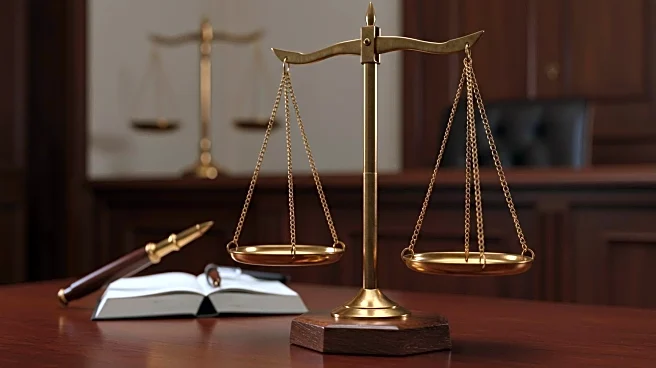What's Happening?
The Supreme Court has decided not to block the enforcement of a Mississippi law that mandates age verification for social media users, a measure aimed at regulating children's use of these platforms. This decision comes amidst a legal challenge from NetChoice, a tech industry group representing major companies like Google, Snap Inc., and Meta. The group argues that the law infringes on privacy rights and restricts free expression. Despite these concerns, the Supreme Court, with no noted dissents, allowed the law to proceed while the lawsuit continues. Justice Brett Kavanaugh noted that NetChoice might eventually prove the law unconstitutional but agreed with the decision to let it take effect for now, as the group did not demonstrate immediate legal harm.
Why It's Important?
This development is significant as it reflects the ongoing national debate over the regulation of social media, particularly concerning the protection of minors. The law's enforcement could set a precedent for similar legislation in other states, impacting how tech companies operate and manage user data. Supporters argue that such laws are necessary to mitigate the negative effects of social media on youth, including increased depression and anxiety. However, tech companies and privacy advocates express concerns about potential overreach and the implications for user privacy and free speech. The outcome of this legal battle could influence future policies and regulations in the tech industry.
What's Next?
As the lawsuit progresses, further legal scrutiny will determine the law's constitutionality. If NetChoice succeeds, it could halt the enforcement of similar laws nationwide. Meanwhile, other states with pending or enacted age verification laws will closely monitor the case, potentially adjusting their strategies based on the outcome. The tech industry may also need to prepare for increased regulatory challenges and consider how to balance compliance with user privacy and freedom of expression.
Beyond the Headlines
The case highlights broader ethical and legal questions about the role of government in regulating digital spaces and protecting vulnerable populations. It raises concerns about the balance between safeguarding children and preserving individual rights. The decision could influence public discourse on digital privacy and the responsibilities of tech companies in managing user data and content.









